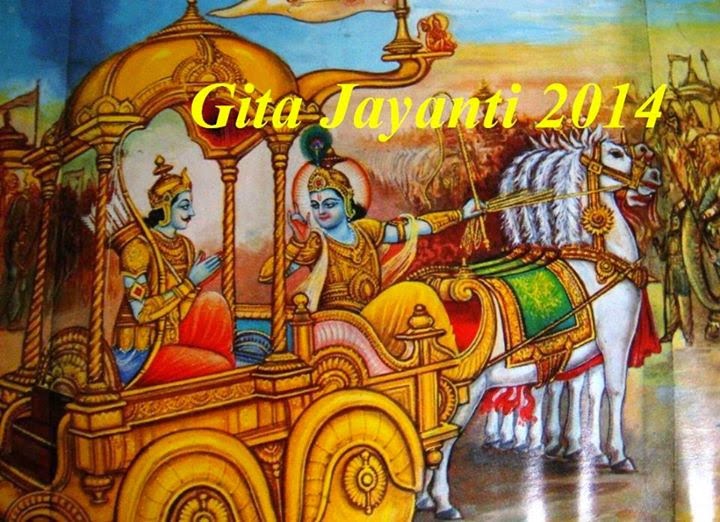The Spiritual Import of the Mahabharata and the Bhagavadgita : Ch-2. Last Part.
Chapter 2: Challenges of the Spiritual Seeker-10.( Last Part )
The compromise with the condition of the human individual is a very strong impulse which has been planted in us since ages past, and no one wishes to die. To enter into the field of battle is to be prepared for death, whatever be the reason behind the justice of the war. But death is the last thing that anyone would be prepared for, because all life is for mere being. If being itself is threatened, what is the purpose of action? All my adventures, all my efforts, all my activities are ultimately to perpetuate my being—my life is to be secure. If I am embarking upon an activity which is going to threaten my very life itself, then I will have to think thrice before taking a step in that direction. Arjuna was despondent. “It appears as if we are going to lose everything, and the very intention behind which this great adventure was embarked upon is at stake. The very goal is being frustrated; the very purpose is not going to be served. The purpose of war is victory—nobody says that the purpose of war is defeat. But is it sure that victory is going to be ours? Perhaps the victory may be of the other side. Where is the guarantee that the victory is going to be ours?”
This doubt will come at the last moment, at the critical point when everything is ready to strike the match. When the fire is going to be ignited, at that very moment the spirit doubts. “Doubts are our traitors,” says Milton in a passage. Our enemies are our doubts, and finally we have a doubt after everything is clear; and that final doubt crushes down all that we have done up to this time. Finally the doubt comes: Is it after all going to bring anything, or am I going to lose everything under the pretext of going to gain God to attain salvation? This doubt will not present itself in the earlier stages. The most ferocious enemy always comes later; the lesser powers are released earlier. In every war, in every battle, the minor powers are used first and the powerful reserves are kept for the last action.
So we seem to be very complacent and everything seems to be all right; all doubts are removed and we are clear in our heads. But there is a subtle pull which is secretly kept inside our own psyche, and that pull will manifest itself as a final doubt of the ‘perhaps’. A peculiar ‘perhaps’ will come out. “Perhaps I am not up to the mark. There is some defect in the whole bold procedure that has been undertaken, and I am going to lose.” Buddha had this. A great master, a genius like Buddha had this feeling. “After all, this has brought nothing; tomorrow I am going to die.” This is what Buddha also felt. “I think today is the last day. All my austerities have brought nothing; I have wasted my efforts. I have lost this world completely. All the pleasures of life are gone, and nothing else is going to come. Okay, this is the last moment. I am going to breathe my final breath.”
This what a man like Buddha felt, and why not anybody else? The great mystics, whether of the West or the East, had these difficulties. These problems are described in various types of nomenclature as maya, Mara, Satan and what not. But all these descriptions are only enunciations of the peculiar reaction that is set up by the world, the universe as a whole in its encounter with the spiritual aspirations of man. These powers of the universe are again like the powers of a large army. The lesser powers come first and the larger powers are kept for reserve in the end. There are layers and layers of cosmos. We have heard of various lokas—bhu-loka, bhuvar-loka, suvar-loka, mahar-loka, jana-loka, tapo-loka and satya-loka. These lokas are nothing but the various layers of the powers of the universe, as we have layers inside us—annamaya kosha, pranamaya kosha, etc. The inner layer is more powerful than the outer, and when we somehow or other succeed in overcoming one particular level, the other one comes in with its power and faces us. These encounters from the various levels of objective power are the descriptions of the Mahabharata battle in the Bhishmaparva, Dronaparva, Karnaparva, etc., all of which are enunciations of the spiritual encounter of the soul with the layers of the cosmos in its attempt at the realisation of the Absolute.
Next : 3.The World is the Face of God :-
To be continued ...





Comments